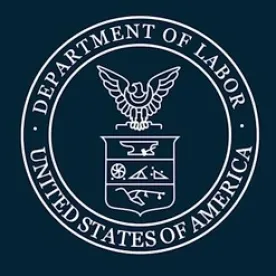The DOL issued a Notice of Proposed Rulemaking proposing, among other things, to increase the salary threshold for white-collar overtime exemptions. You may recall that there was a lot of discussion about this back in 2016 when the DOL proposed a rule raising the threshold from $23,660 to $47,476. Litigation ensued, and a court held that the rule was invalid. In 2019, DOL raised the salary threshold to $35,568. Well, the DOL has a new proposal.
Cutting to the Chase
- White-Collar Overtime Exemption. The DOL proposes to increase the salary threshold for the white-collar overtime exemption from $684 per week ($35,568 per year) to $1,059 per week ($55,068 per year), exclusive of board, lodging and other facilities. You can still pay these employees by the week, biweekly, or monthly. The secretary of labor will update this threshold every three years. There is also a separate proposed standard for employees in American Samoa.
- Academic Administrative Employees. The DOL proposes that the salary level for academic administrative employees must be $1,059 per week or at a rate at least equal to the entrance salary for teachers in the educational establishment.
- Computer Employees. For employees who work as computer systems analysts, computer programmers, software engineers or other similarly skilled workers in the computer field performing specific computer duties, the DOL proposal will increase the salary threshold to $1,059 per week. You can still meet the compensation requirement if you pay an hourly rate of at least $27.63.
The salary threshold still does not apply to the following professional employees: teachers, lawyers, and doctors (including interns and residents). That professional exception does not apply to pharmacists, nurses, therapists, technologists, sanitarians, dietitians, social workers, psychologists, psychometrists, or other professionals who service the medical profession.
Don’t Forget the Highly Compensated Exemption
DOL proposes an increase of the annual salary threshold for highly compensated employees from $107,432 to $143,988. You can still use commissions, nondiscretionary bonuses, and incentives for up to 10% of this threshold. Your highly compensated employees still need to meet the other requirements for the exemption. The secretary will also update this threshold every three years.
Commenting on the Proposed Regulations
If you want to submit comments on the proposed rule, you have until 60 days after the proposed rule is published in the Federal Register. The department strongly recommends that commenters submit their comments electronically. If you would like assistance with submitting a comment, please reach out to us.
Likely Court Challenges
Given that every recent increase has been challenged in court, there is no reason to think this proposal won’t be challenged as well. The Supreme Court has shown an increasing interest in to addressing administrative regulatory actions and in the recent FLSA case Helix Energy Solutions Group, Inc. v. Hewitt, which addressed addressing the highly compensated exemption. The Court signaled a willingness to address whether the salary basis regulations are even consistent with the FLSA. Justice Kavanaugh’s dissenting opinion stated:
“I am hard-pressed to understand why it would matter for assessing executive status whether an employee is paid by salary, wage, commission, bonus, or some combination thereof . . . whether in Hewitt’s case on remand or in another case, the statutory question remains open for future resolution in the lower courts and perhaps ultimately in this Court.”
Steps for Employers
If the proposed regulations survive, they are likely to go into effect in 2024, so you should begin considering how to navigate this potential change. Although you may want to hold off on implementing any actual changes until a clearer picture emerges, there are steps that you can take now.
- Identify any employees who will not meet these new thresholds.
- Determine whether you would want to increase their salaries to the new threshold (or not).
- If not, start thinking about whether you would move those employees to hourly rates and plan for overtime.
- You can use this opportunity to conduct a pay analysis for fairness and EEOC considerations. Remember to get your lawyer involved if you want to privilege that review.






 />i
/>i

